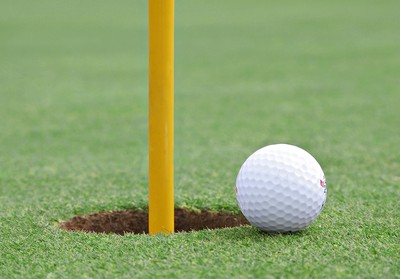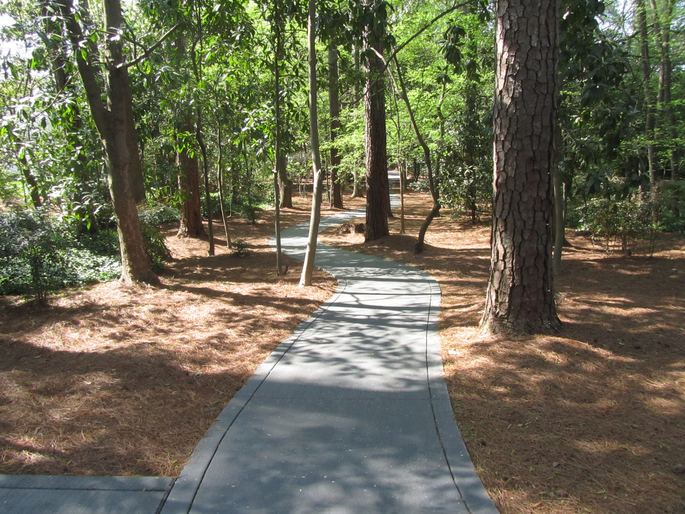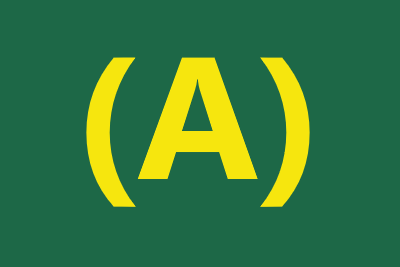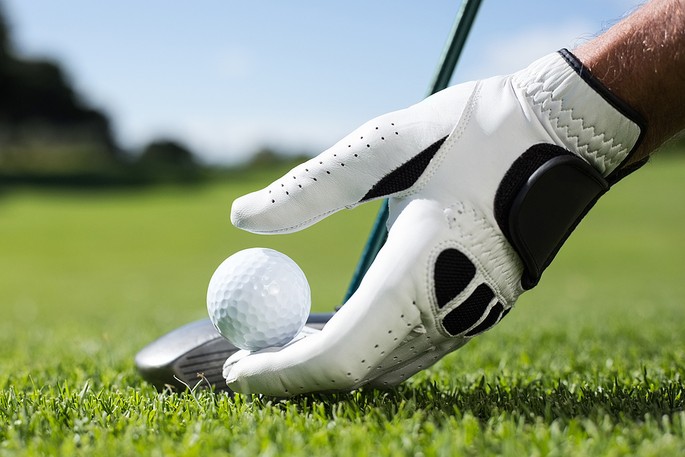 When it comes to golf, there are essentially four competitions that stand out about all the others. Known as the Majors, they are the US Open, the Open Championship, the PGA Championship and the Masters. Every single golfer dreams of winning one of the Majors, with there being a very strong argument that the Masters stands at the top of that last. There are numerous different competitions that are played throughout the year that are open to golfers and present them with an opportunity to win large sums of money, but there is something more to the Masters that means the money alone isn’t the only thing that matters.
When it comes to golf, there are essentially four competitions that stand out about all the others. Known as the Majors, they are the US Open, the Open Championship, the PGA Championship and the Masters. Every single golfer dreams of winning one of the Majors, with there being a very strong argument that the Masters stands at the top of that last. There are numerous different competitions that are played throughout the year that are open to golfers and present them with an opportunity to win large sums of money, but there is something more to the Masters that means the money alone isn’t the only thing that matters.
It is the first Major of the year, giving it a lustre that no other tournament can compete with. It is also the only Major that is played at the same course every year, with Augusta National being a course that most golfers would give anything to play. As it’s a private course, however, it doesn’t matter what a golfer would give, they aren’t getting on the course unless they’re invited. For amateurs, therefore, there aren’t that many opportunities to play Augusta, presuming they’re not a member of the course, let alone to head to the Masters and win it. The question is, has any amateur ever won the Masters?
Quick Answer: Has an Amateur Golfer Ever Won the Masters at Augusta?
No amateur golfer has won the Masters at Augusta National Golf Club in the 87 tournaments between 1934 and 2023.
The best finishes by amateur players have been Ken Venturi finishing second in 1956 and Frank Stranahan and Charles Coe who both tied for second place in 1947 and 1961 respectively. Venturi actually lead for the first three rounds but was pipped to the title by one shot by Jack Burke Jr on the final day.
As an amateur, record Masters Champion Jack Nicklaus tied for 13th in his first Masters in 1960, and tied for 7th in 1961.
There have been three amateur winners of the Par 3 Contest held the day before the opening round. They were Deane Beman in 1961, Labron Harris Jr in 1964 and Jay Haas in 1976.
The Ways to Get to Augusta

Walkway at Augusta National by Dan Perry, flickr
If an amateur wants to win the Masters then they’re going to need to qualify to play there first. There are strict qualifying routes for the competition, which will obviously shift and change depending on how golf wants to see itself at any given moment. At the time of writing, there are 21 ways that a golfer can make it to Augusta National, which are as follows:
- Masters Tournament Champions get a lifetime invitation
- US Open Champions are invited to the Masters for the following five years
- The Open Champions are invited to the Masters for the following five years
- PGA Champions are invited to the Masters for the following five years
- The Players Championship winner is invited to the Masters for the following three years
- The current Olympic Gold medal winner is invited to the Masters for one year
- The current US Amateur Champion is invited to the Masters for one year
- The runner-up to the US Amateur Champion is invited to the Masters for one year
- The current Amateur Champion is invited to the Masters for one year
- The current Asia-Pacific Amateur Champion is invited to the Masters for one year
- The current Latin America Amateur Champion is invited to the Masters for one year
- The current US Mid-Amateur Champion is invited to the Masters for one year
- The first 12 players from the previous year’s Masters, including any ties, are invited to the Masters the following year
- The first four players from the previous year’s US Open, including any ties, are invited to the Masters the following year
- The first four players from the previous year’s Open Championship, including any ties, are invited to the Masters the following year
- The first four players from the previous year’s PGA Championship, including any ties, are invited to the Masters the following year
- Any individual PGA Tour event winners that have a full-point allocation for the Tour Championship at the end of the season are invited to the Masters for one year
- Anyone who qualified for the previous years’ season-ending Tour Championship is invited to the Masters for one year
- The 50 leaders on the Final Official World Golf Ranking for the previous calendar year are invited to the Masters for one year
- The 50 leaders on the Official World Golf Ranking that is published in the week prior to the Masters Tournament are invited to take part in the Masters that year
- Invitation from the Augusta National Committee
The Pathway for Amateurs
 As you can see from the above list, there are opportunities for amateur golfers to get to Augusta National each year. The Masters may be a Major filled with traditions, but that doesn’t mean that upcoming talented golfers are excluded altogether. The world’s best amateurs can earn themselves the right to play at Augusta by winning one of the high-profile amateur events, or the likes of the golf that is played during the Summer Olympics. The key thing is that amateurs winning an amateur event and thereby earning themselves a ticket to Augusta need to stay as an amateur until the first day of the Masters Tournament.
As you can see from the above list, there are opportunities for amateur golfers to get to Augusta National each year. The Masters may be a Major filled with traditions, but that doesn’t mean that upcoming talented golfers are excluded altogether. The world’s best amateurs can earn themselves the right to play at Augusta by winning one of the high-profile amateur events, or the likes of the golf that is played during the Summer Olympics. The key thing is that amateurs winning an amateur event and thereby earning themselves a ticket to Augusta need to stay as an amateur until the first day of the Masters Tournament.
In other words, if you win one of the amateur competitions and turn professional before the Masters gets underway, you might well find that your pass to Augusta is no longer open to you because different rules apply when it is a professional trying to earn the right to play there. That is why you’ll often find that an amateur playing at Augusta turns professional after playing there; it isn’t because they suddenly think they’re amazing because they’ve played at Augusta but more because Augusta was the final competition they wanted to play as an amateur. Those amateurs that do make it are invited to stay in the Crow’s Nest at the top of the clubhouse.
Has an Amateur Ever Won the Masters?

The key question on this page is about whether or not an amateur has ever actually won the Masters. In the modern era it would be very difficult for one to do so, as much because of how they get to play in the tournament in the first place as anything else. In the past, though, professionalism was a lot less common than it is today. One of the founders of Augusta National as a golf course was Bobby Jones who is considered by many to be the greatest amateur ever to play golf as a sport. That is why the Masters takes amateurs so seriously, treating them with the same level of respect that Jones was treated all those years ago.
Amateurs are invited to the opening dinner, playing the first two rounds in the company of the past champions that are playing, with the scoreboards showing the names of all of the amateurs before play gets underway. Whilst they are treated with the utmost respect, no amateur has yet managed to go on and win the Masters. The one that performs the best has been awarded the Silver Cup since 1952, whilst the Silver Medal has been awarded to the second-best amateur since 1954. In other words, an amateur that does well is given an honour for their performance at Augusta National, even if actually winning it is unlikely.
Whilst no amateur has won the Masters itself, one has won the Par 3 Contest that precedes it. The first was held ahead of the 1960 Masters Tournament, with the contest taking place in a single round course that has nine holes and is located in the northeast corner of the grounds. It is fair to say that it isn’t taken all that seriously, with participants inviting family members to caddy for them and event take their shots on occasion. Even so, Deane Beman won’t have been dismissive of his own achievements in 1961 when he won the Par 3 Contest, becoming the first amateur to do so. Since then others have followed suit, such as Labron Harris Jr. and Jay Haas.
Amateur Par 3 Contest Winners – 1934 to 2023
| Year | Player | Score | Nationality |
|---|---|---|---|
| 1976 | Jay Haas | -6 | USA |
| 1964 | Labron Harris Jr | -4 | USA |
| 1961 | Deane Beman | -5 | USA |
The Best Performing Amateurs
Although no amateur has won the Masters, that doesn’t mean that some haven’t come close. There have been some noteworthy performances over the years, which we’ll take a closer look at now:
Ken Venturi – 2nd in 1956
| Round | Score | To Par |
|---|---|---|
| 1 | 66 | -6 |
| 2 | 69 | -3 |
| 3 | 75 | +3 |
| 4 | 80 | +8 |
| Total | 290 | +2 |
In 1956, Ken Venturi was playing in the Masters as an amateur at the age of just 24. After the first three rounds he was leading the way, with a field including names such as Sam Snead, Arnold Palmer and Ben Hogan left in his wake. With the final 18 holes left to play he was four shots clear at the front and it looked as if the Masters would have an amateur winner for the first time. Terrible weather meant that he struggled, however, with a back-nine score of 42 seeing him card a final round total of 80. Jack Burne Jr. coped better with the conditions, posting 71 and winning the Masters by a single shot.
Frank Stranahan – Tied for 2nd in 1947
| Round | Score | To Par |
|---|---|---|
| 1 | 73 | +1 |
| 2 | 72 | Even |
| 3 | 70 | -2 |
| 4 | 68 | -4 |
| Total | 283 | -5 |
Between 1936 and 1954, Frank Stranahan had won 70 amateur tournaments. If ever a player was likely to be able to take the fight to the professionals at the Masters, therefore, then it was him. He was a good all-round sportsman, not only being a champion power lifter but also going on to be a long-distance runner after his retirement from golf. In 1947 he had a barn-storming final round of 68, which powered him into second place alongside his former coach Byron Nelson. It meant he finished just two off the top, with Jimmy Demaret the ultimate winner. Six years later he also finished second in the Open Championship to Ben Hogan.
Charles Coe – Tied for 2nd in 1961
| Round | Score | To Par |
|---|---|---|
| 1 | 72 | Even |
| 2 | 71 | -1 |
| 3 | 69 | -3 |
| 4 | 69 | -3 |
| Total | 281 | -7 |
Charlie Coe took part in the Masters 19 times, finishing in the top 25 players on nine of those occasions. That makes him the most successful amateur ever, with Coe managing to go about his business quietly during the 1961 contest as Arnold Palmer and Gary Player battled for top-spot. Player won out, with Palmer’s double-bogey on the 18th on the last day seeing him drop to second. Meanwhile, Coe had hit three birdies on the back nine to get a 69 for the day, seeing the 37-year-old actually end up tying with Palmer. It was some performance from the amateur to end up with the same score as one of the best players ever.
Billy Joe Patton – 3rd in 1954
| Round | Score | To Par |
|---|---|---|
| 1 | 70 | -2 |
| 2 | 74 | +2 |
| 3 | 75 | +3 |
| 4 | 71 | -1 |
| Total | 290 | +2 |
In 1954, the leader after the first two rounds of golf was an amateur named Billy Joe Patton. He found himself one shot ahead of Ben Hogan, but a bit of a disaster in his third round, where he shot 75, saw Hogan move five shots clear of him. Rather than crumble as many amateurs would be inclined to do, Patton shot 32 on the front nine of his final round, including a hole-in-one on the sixth. He was back to being one shot ahead by the time he has six left to play, but a decision to go for the green on the 13th saw the 32-year-old find the drink and end up with a seven. He was one shot off the leaders in the end, with Sam Snead winning over Ben Hogan in a play-off.
Harvie Ward – 4th in 1957
| Round | Score | To Par |
|---|---|---|
| 1 | 73 | +1 |
| 2 | 71 | -1 |
| 3 | 71 | -1 |
| 4 | 73 | +1 |
| Total | 288 | Even |
The year after Ken Venturi had come so close to winning, it was the turn of Harvie Ward to put in a good display for the amateurs. Having previous been both the British and US Amateur Champion, Ward was just a single shot behind Sam Snead with 18 holes to play. He struggled to find any sort of a spark on the Sunday, with Doug Ford shooting 66 and taking the title rather comfortably. Ward wasn’t going to be too hard on himself, however, given the fact that he managed to finish fourth. It wasn’t what he’d hoped for given how well he’d played on the first three days, but he’s still the fifth-best amateur in Masters history all these years later.
Jack Nicklaus – Tied for 7th in 1961
| Round | Score | To Par |
|---|---|---|
| 1 | 70 | -2 |
| 2 | 75 | +3 |
| 3 | 70 | -2 |
| 4 | 72 | Even |
| Total | 287 | -1 |
Ok, being tied for seventh might not seem all that impressive, but given who it is that we’re talking about here it seemed like it was worth a mention. Having finished in second place in the 1960 US Open, there was a sense of anticipation surrounding Jack Nicklaus when the Masters got underway the following year. Having tied for 13th the previous year, he was hoping to improve on his performance this time around. He did just that, ending up tied for seventh but missing out on the accolades because Charlie Coe tied for second. Nicklaus had the last laugh, of course, playing in 45 Masters Tournaments and winning a record six Green Jackets.
Sam Bennett – Tied for 16th in 2023
| Round | Score | To Par |
|---|---|---|
| 1 | 68 | -4 |
| 2 | 68 | -4 |
| 3 | 76 | +4 |
| 4 | 74 | +2 |
| Total | 286 | -2 |
There are other players that have performed better than Bennett in recent years, but it is worth mentioning him because of the records that he set during his excellent performance in 2023. He shot a bogey-free 68 on the first day, being the first amateur to do so in 30 years, whilst his 68 second round meant that he was the first for 20 years to be inside the top three after two rounds of golf. He had also become the first amateur since Charles Coe in 1961 to shoot two rounds in the 60s at the Masters. The fact that he was eight under after two rounds meant he had shot the lowest amateur score since Ken Venturi in 1956.
